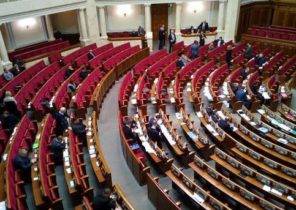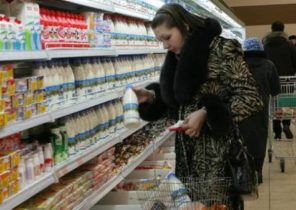
The joke is old, but he’s got a new life after the chief economist of the Bank of England (i.e. a person occupying one of the most important posts in the profession) compared the economy with one of the largest errors in the forecasts.
Andy Haldane is optimistic that, as in meteorology after the fiasco, the use of more data and advanced computer technologies will help the economic forecasts to make up for the failure to predict financial crisis of 2007-2009.
It is in vain. The problem is not that weather forecasts and economic predictions differ from each other (although the way it is, and in very important respects, to which I will return). The problem is their considerable similarity: both those, and others are trying to predict a complex system, which may vary from one state to another for mere trifles.
There’s a reason why meteorologists can’t tell you whether to go on your next birthday rain: it’s too hard. Responsible meteorologists use for long-term projections very broad categories (“wet”, “dry”, “moderate”), they do not give accurate predictions for specific days and even months.
The same holds in the economy where there are just too many variables. What kind of growth awaits the US economy in 2017? The correct answer is: “It depends”. If Donald trump uses his presidential power to impose huge tariffs Chinese and Mexican imports, and China and Mexico will retaliate, growth will be significantly lower than in the case if the President-elect will not. If the oil will cost 20 dollars per barrel, economic growth will be different from the situation in which the price of oil will reach $ 150 per barrel. The war in the middle East, the disaster with the Chinese loan, the collapse of the stock exchange or the new Eurozone crisis — all this is likely to affect the level of economic growth. And this is just some obvious risks, not even taking into account unexpected bankruptcies of banks or changeable “animal passion” of John Maynard Keynes (John Maynard Keynes).
However, economists have kept ready response: U.S. economic growth will be 2.25% this year, according to forecasts, Consensus Economics analyzed last month. They give extreme (the lowest is 1.7%, the high — 3%), but in the history there were only two cases of such a common economic forecasts from the beginning of data collection, Consensus in 1989.
History suggests that investors should not trust this figure. As noted last week, Mr. Haldane, the economy is not able to predict large-scale turning points in overall economic situation, that is exactly those moments which you would most like to receive advance warning.
Studies Prakash Loungani (Prakash Loungani), head of economic development in the research Department of the International monetary Fund, and his colleagues have demonstrated the inability to predict the recession. None of the 62 recessions in 2008 and 2009 in the world was not predicted by the forecasts collected by Consensus Economics in September of the previous year. The forecast slowdown of the us economy came after the start of the recession.
“I’m a little puzzled why so much emphasis on point estimates of predictions,” says Loungani.
Investors can take the economy to the sphere of anecdotes and to continue its further existence. It would be a mistake. The economy may be useful, but only if the right of its use in the evaluation of different scenarios. Specific economic forecasts should be made with probability and precise assumptions, and these assumptions should be subjected to critical analysis from users of forecasts and not to hide in models and applications.
The importance of assumptions became apparent due to the forecast of a recession made by the UK Treasury ahead of the referendum Brakcet in June 2016. It was believed that monetary policy will remain unchanged, and the Prime Minister, as promised, will immediately start the process of withdrawal from the European Union.
Both assumptions were incorrect, and with the British economy until everything was in order. The problem was not the economy and (political) preferences in admissions, largely ignored at the time, those who warned about the consequences of Brexia, and later critics. The Prime Minister resigned, the Bank of England reacted to the anxiety in the economy, lower interest rates, and the process of withdrawal of Britain from the European Union and has not begun.
Here lies the main difference between the economic forecasts from meteorology: weather forecasts don’t change the weather and economic forecasts can change the economy. If the Central Bank predicts a recession, as a result, it can lower interest rates that can prevent the recession. Policy, warned that the crossing of the exit of Britain from the EU could trigger a recession, was cautious, at least until now.
A response to forecasts is one of the reasons why hope Mr. Haldane on the improvement of economic forecasts, in line with the predictions of the weather, is unlikely to be implemented. Another reason is that, while big data gives many interesting results as in the case of MIT attempts to track inflation using the prices online, they are inevitably incomplete. As noted, UBS economist Paul Donovan (Paul Donovan), ignoring the offline economy, they exclude the “growing active minority, left out of the equation”.
Perhaps the best way to use economic forecasts in the area of investment — as an indicator of excess of confidence that often indicates excessive enthusiasm for market in one direction.
At a time when uncertainty in economic policy, presumably, is growing, with a high level of agreement among economists regarding growth forecasts suggests that they are not ready for the unexpected. A year ago this agreement was another sign of crowding in the market, followed by a decrease in growth stocks and interest on bonds. After striking shift from bonds to shares, which occurred thanks to Donald Trump, today’s market seems vulnerable to any bad news.







